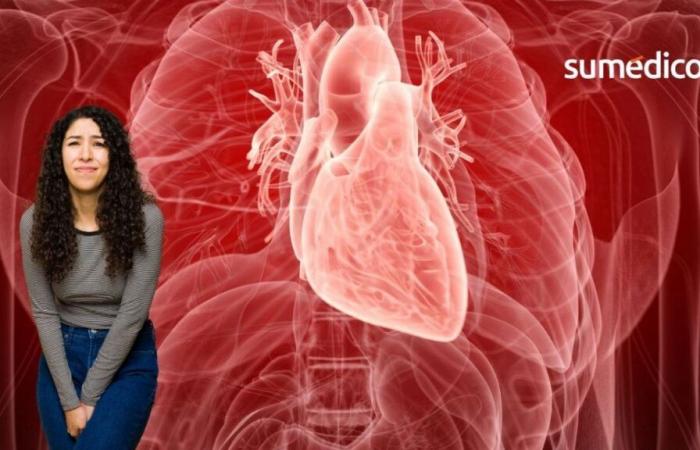The urinary incontinence or the loss of bladder control is a common problem, especially in womenwhich can greatly affect the quality of life due to the discomfort it generates. Now, a study states that it could also increase the risk of heart disease Why? This is all you have to know.
Medlineplus details that when a person suffers from urinary incontinence It has an inability to control urine, which prevents everyday activities for the insecurity of having an “accident”.
Las women They can be especially susceptible to urinary incontinenceespecially after pregnancy, childbirth or menopause. The elderly also suffer from this problem due to the weakness of the urinary tract that occurs with age.
A recent study led by Lisa VanWielassistant professor at the University of Wisconsin-La Crosse, identifies a significant association between urinary incontinence and a higher risk of cardiovascular disease (ECV) in women.
Urinary incontinence And its relationship with heart disease
According to the investigation published in Preventive Medicinewomen with urinary incontinence present:
- 25% more likely to develop type 2 diabetes.
- 37% more likely to have high cholesterol.
- 55% more likely to have suffered a stroke.
- More than three times more likely to have required coronary bypass surgery.
These results suggest that urinary incontinence could be an early indicator of cardiovascular riesgo In women.
To reach these results, the medical records of more than 20,000 women treated in the Hartford, Connecticut health system, between July 2022 and June 2024 were analyzed.
Why can urinary incontinence cause cardiovascular diseases?
Initially, researchers thought that urinary incontinence could reduce physical activity due to the fear that those who suffer from having a leak and, therefore, increase cardiovascular risk.
-However, the study did not find significant differences in the levels of physical activity between women with and without incontinenceindicating that other factors, such as stress, anxiety or chronic inflammation, could be involved in this association?
Researchers also highlight that additional studies are needed that include aerobic aptitude, anxiety and stress to better understand the mechanisms behind this relationship.
How to take care of me if I have urinary incontinence?
The study highlights the importance of considering urinary incontinence not only as a Problem Urologico which can cause uncomfortable moments, but also as a possible cardiovascular risk marker.
Urinary incontinence greatly affects women, especially in advanced ages, so it is essential to go to the doctor to perform checks to monitor heart health.
In general, it is important that, if you have urinary incontinence, you take into account the following:
- Healthy lifestyle: Maintaining a balanced diet, performing physical activity regularly and avoiding the consumption of tobacco and alcohol is fundamental.
- Stress management: We recommend you practice relaxation and stress management techniques, such as meditation or yoga
- Regular evaluations: Go to periodic medical check -ups that include cardiovascular evaluations, especially if risk factors such as diabetes or hypertension occur.
There are several Types of urinary incontinenceeach with specific symptoms and causes, among which it stands out:
- Incontinence of effort. It is given by stress or pressure in the bladder, such as when coughing, sneezing, laughing, raising something heavy or exercising. The weakness of the pelvic floor muscles and the bladder outside its normal position are the main cause.
- Emergency incontinence. It causes a strong need to urinate and commonly the urine escapes before you can reach the bathroom. It occurs by a hyperactive bladder, by advanced age or by urinary infection.
- Incontinence for overflowing. The bladder does not completely empty what makes it fill too fast and that there are involuntary leaks. It is common in men and can occur by tumors, diabetes or kidney stones.
Urinary incontinence has several causes, so in the face of symptoms it is essential to seek medical attention for adequate diagnosis and treatment.
To find out all the information you need about health and well -being follow us on Facebook and Tiktok






